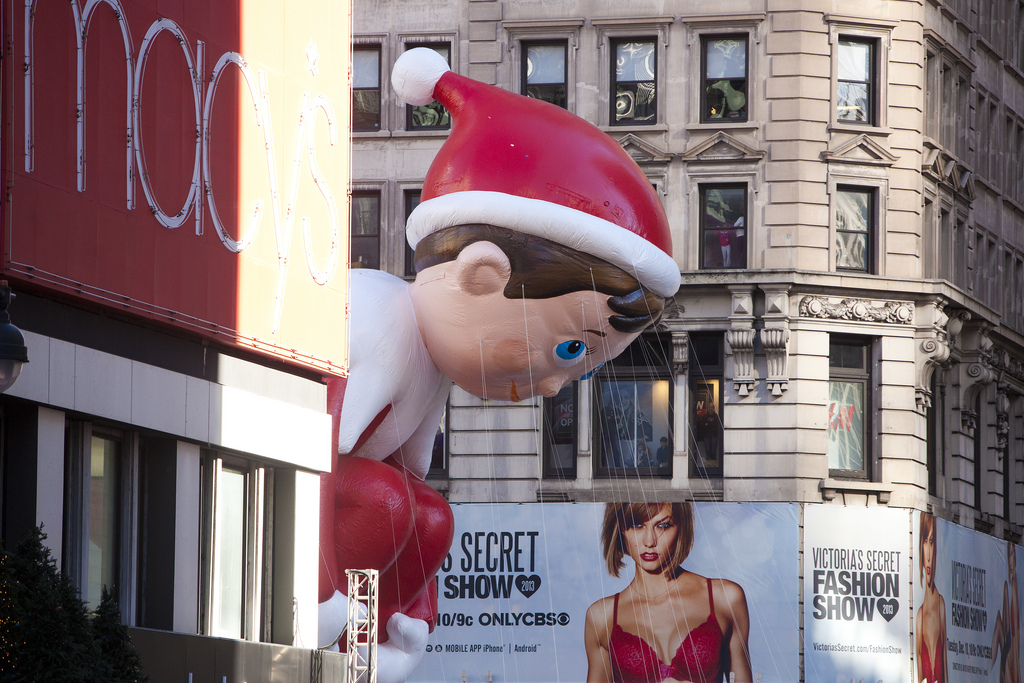
Another year, another round of righteous indignation that Christmas commercials appear on TV before Halloween is even dead in the ground. And the outrage is legitimate. Get it together, people. Everyone knows that the Christmas season officially begins the moment Macy’s sends Santa across the main stage of their parade. It’s still consumerist AF, but at least it’s a legacy that tries to establish a modicum of order in the capitalist hellscape that is the American holiday season.
And like it or not, Chanukah is part of that hellscape. From the presents to the ugly sweaters, we gave up part of the dignity of the holiday long ago when we as Jews wanted to become American. And so, since our holiday shifts around on the Gregorian calendar, when is it appropriate for us to get into the holiday spirit, break out the Chanukah punk music, cook something festive (like kimchi latkes)?
Here are a few ideas of how to mark this sacred time:
1. Rosh Chodesh Kislev— Chanukah begins on the 25th of the Hebrew month, so beginning Chanukah season on the first of said month is consistent, with plenty of time to shop, make sugar cookies in the shape of Jewish stars, etc.
Pros: This is a really Jewish response, one that feels less like bowing to secular culture— it’s what the Maccabees would have wanted.
Cons: We get less prep time than the Christians— they don’t start the season on December 1st! Plus, who even keeps track of rosh chodesh?
2. The Thanksgiving Parade— If we’re mirroring Christian America on this, we may as well go by the same standard. Watching Santa during the parade is taking it too far, so let’s say the season would start from the Jewish equivalent: seeing the first Broadway cast performance on the main stage.
Pros: It’s very American, linking the Jewish winter holiday directly to Thanksgiving.
Cons: Both holidays shift on the calendar. Remember Thanksgivukkah? The amount of seasonal holiday time would wildly fluctuate from year to year.
3. The first night of Chanukah— Let’s be generous here and say the morning before the first night. The holiday, after all, is eight days, unlike Christmas’s one (don’t give me that 12-day narishkeit). So why take extra prep time?
Pros: Let’s be real. It’s a blessing to have a truncated holiday season. Have you ever walked around on a year when Chanukah ended before Christmas and heaved a sigh of relief at everyone else’s stress?
Cons: What? No prep time at all?
4. Eight times more holiday season time than Christmas— The holiday is eight times as long, so shouldn’t we get more time proportionately to prepare.
Let’s do some quick math. There’s approximately one month from Thanksgiving to Christmas, so eight months would mean… we can start eating latkes and sufganiyot in April, or sometime between Purim and Passover.
Pros: More Chanukah time.
Cons: None.
So, which system should we officially adopt? Should each major Jewish denomination issue its own ruling? Can this help us fight our war on Christmas?
Whatever. I’ll be watching A Rugrats Chanukah when I like and justify that it’s seasonal however I can. That’s a very Jewish response, too.
Image of nightmare elf by Anthony Quintano, via Flickr.








